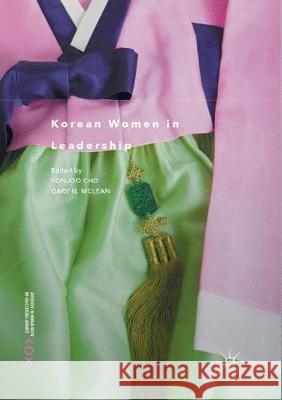Korean Women in Leadership » książka
topmenu
Korean Women in Leadership
ISBN-13: 9783319877594 / Angielski / Miękka / 2018 / 297 str.
Kategorie:
Kategorie BISAC:
Wydawca:
Palgrave MacMillan
Seria wydawnicza:
Język:
Angielski
ISBN-13:
9783319877594
Rok wydania:
2018
Wydanie:
Softcover Repri
Ilość stron:
297
Oprawa:
Miękka
Wolumenów:
01
Dodatkowe informacje:
Wydanie ilustrowane











